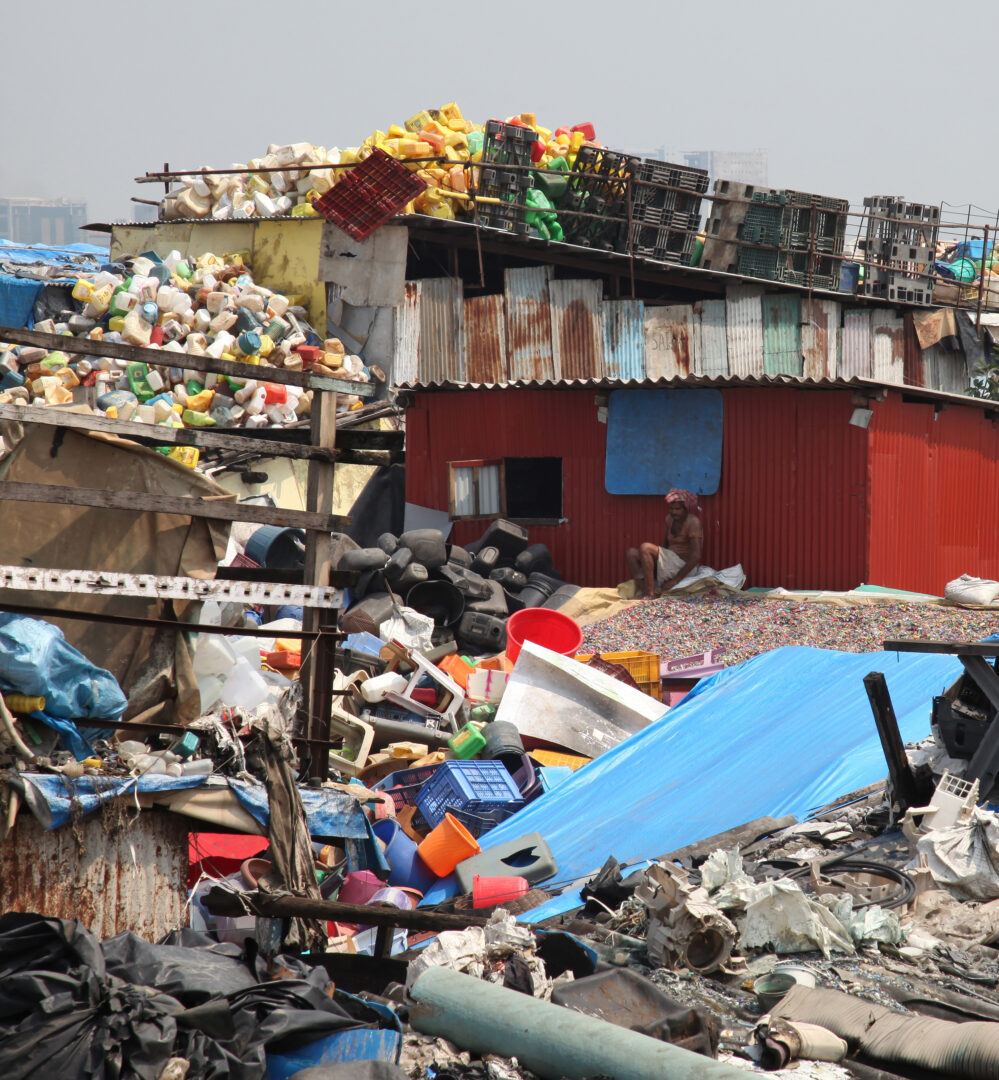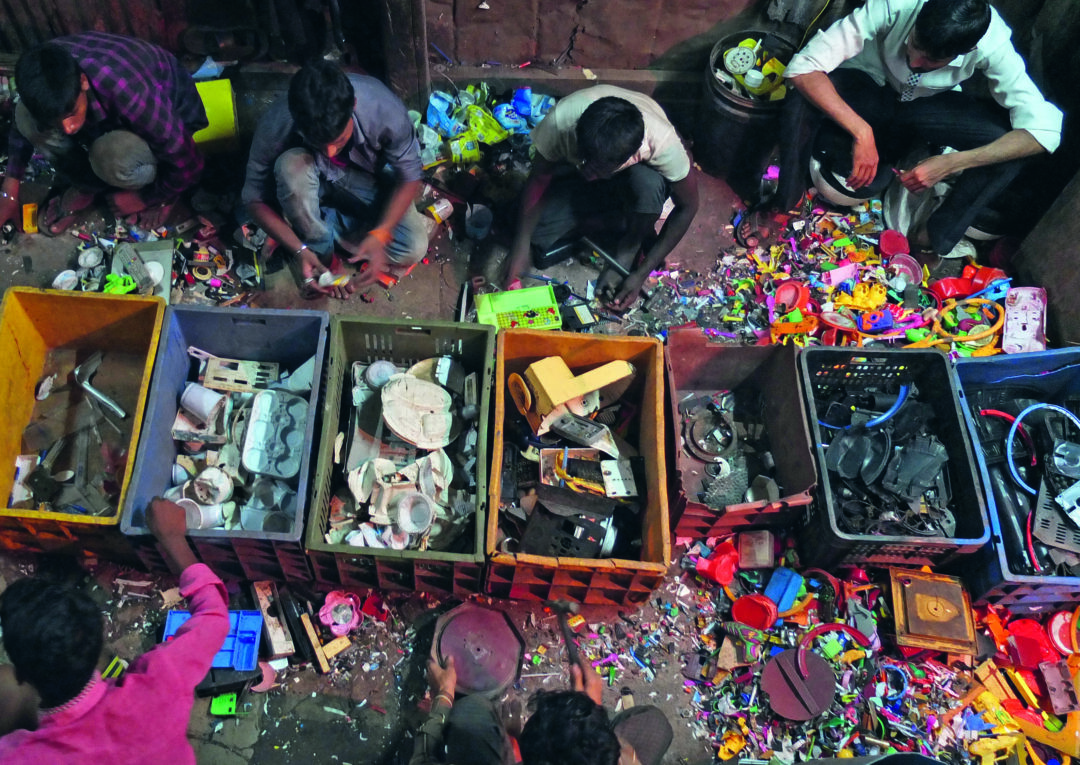
Roofs tops of 13 Compounds, Dharavi Mumbai, 2019
‘We have to follow the things themselves, for their meanings are inscribed in their forms, their uses, their trajectories’ (Appadurai, 1986, p.5).
Material Flows is an exhibition exploring the hidden journeys and afterlives of plastic waste. It marks the beginning of a new phase, delving into the plastic pollution crisis linked to the global production and trade of plastic waste. By mapping the trajectories of waste colonialism, the project situates plastic as both material and metaphor for the enduring inequalities and environmental crises shaped by global systems of extraction and disposal.
At the centre is the colonial legacy of resource extraction by companies such as the Dutch East India Company, whose activities in Indonesia, including early oil exploration, laid the groundwork for the exploitative resource systems that endure today. This foundation in oil exploration has left a lasting impact: the same resources that fuelled colonial economies now drive plastic production, only for the resulting waste to often return to Indonesia and other former colonies. This cyclical flow highlights how historic patterns of extraction persist, amplifying environmental injustices within contemporary global waste streams. By tracing these material flows, the exhibition reveals the entangled histories and toxic burdens carried by landscapes and communities across the global South.
The global waste trade, shaped by economic and regulatory imbalances, often exploits countries and territories with weak environmental regulations, reinforcing a contemporary form of waste colonialism. Large quantities of plastic waste, diverted from more regulated nations, end up in landfills, waterways, or are incinerated, creating long-lasting toxic entanglements that expose vulnerable territories and communities to pollution (Liboiron, 2021). These flows impose a heavy toll on labour systems that extract value from discarded materials, while simultaneously devaluing human and environmental health. The biopolitics of disposability (Giroux) thus underpins the exhibition, examining how uneven distributions of waste and exploitation define the landscapes of our current crisis.

Image, Ben Parry, Plastic Sorting line, 13 Compounds, Dharavi, Mumbai (2020)
Material Flows unfolds through objects, installations, film, multimedia and data-driven art works that confront audiences with the cumulative impacts of plastic’s life cycle, making visible the ecological and social debts accrued along the way. Employing plastic as both material and conceptual anchor, the exhibition maps shifting global waste flows as part of a longer-term research project. It is part of a long-term research project developed through Compound 13 Lab* (2018–2023) that focused on the informal waste and plastic recycling economy in the megacity of Mumbai. The collaborative enquiry connects researchers, artists and material scientists in UK, Netherlands, Indonesia, Malaysia and India, unfolding via a series of “plastic dialogues,” creating a spatial narrative of objects, infrastructures, and human and non-human actors, in which plastic, as both material and transformative process, animates the global network of extraction, production, and waste.
This multi-site format reflects the exhibition’s intention to visualize how these entanglements form new “intra-active assemblages,” reshaping our understanding of materials, histories, and the uneven burdens of environmental crises.
*Compound 13 Lab is an experimental learning space and artist-residency programme in Dharavi, Mumbai, developed as a resource for young people whose families earn a living from the informal waste sector.
Read the brochure here.